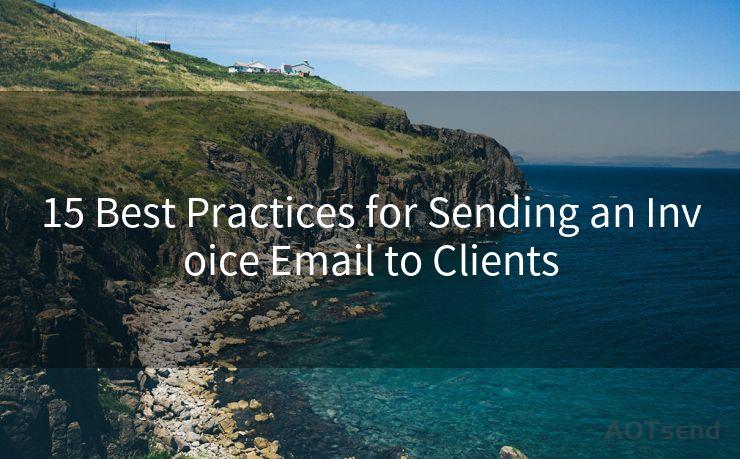15 Best Practices for Sending an Invoice Email to Clients




When it comes to invoicing clients, the process is more than just sending a bill. It's an opportunity to strengthen your professional relationship, ensure timely payments, and avoid any misunderstandings. Here are 15 best practices for sending an invoice email to clients that will help you achieve these goals and optimize your chances of getting paid promptly.
1. Clear and Professional Subject Line
Start with a clear and to-the-point subject line that reflects the content of the email, such as "Invoice for [Project Name] - Due Date [Date]." This helps the recipient understand the email's purpose immediately.
2. Personalized Greeting
Always use a personalized greeting, addressing the client by name. This adds a touch of familiarity and professionalism to your communication.
3. Introduction to the Invoice
Briefly introduce the invoice, mentioning the project or service it relates to. For example, "I'm attaching the invoice for the website design project we completed last month."
4. Detailed Invoice Information
Include all the necessary details in your invoice, such as the invoice number, date, services provided, rates, and total amount due. Clarity is key to avoiding confusion.
5. Payment Terms and Conditions
Specify the payment terms, including the due date, payment methods accepted, and any late payment penalties. This sets clear expectations and encourages timely payments.
6. Attach the Invoice
Make sure to attach the invoice file in a commonly used and easily accessible format, like PDF. Avoid using proprietary or unusual file formats.
7. Thank the Client
Express gratitude for the client's business. A simple "Thank you for your business" goes a long way in maintaining positive relationships.
8. Provide Contact Information
Include your contact information in case the client has any questions or concerns about the invoice. This enhances transparency and builds trust.
9. Use a Professional Tone
Maintain a professional and courteous tone throughout the email. Avoid colloquial language or slang, and stick to formal yet friendly communication.

10. Request Confirmation
Ask the client to confirm receipt of the invoice and their understanding of the payment terms. This adds an extra layer of assurance and can help resolve any potential issues early on.
11. Follow Up
If payment is not received by the due date, send a polite follow-up email to inquire about the status. Be persistent but respectful.
12. Use Templates for Efficiency
To save time, create a template for your invoice emails. This ensures consistency and efficiency while still allowing for personalization where needed.
13. Test Email Display
Before sending, test how the email displays on different devices and email clients. This helps ensure your message is clear and professional no matter how it's viewed.
14. Consider Timing
Be mindful of when you send the invoice email. Avoid sending it at the end of the workday or on Fridays, as these times may delay the client's response.
15. Track and Analyze
Keep track of when invoices are sent, confirmed, and paid. Analyze this data to identify any patterns or issues that may need addressing.
By following these 15 best practices for sending an invoice email to clients, you can streamline your invoicing process, improve client communication, and enhance the likelihood of timely payments. Remember, every interaction with a client is an opportunity to strengthen your professional relationship and build trust.




🔔🔔🔔
【AOTsend Email API】:AOTsend is a Managed Email Service for sending transactional emails. Support Email Types: reminders, authentication, confirmations, notifications, verification codes, invoices, password resets, account activations, billing statements, two-factor authentication (2FA), and one-time passwords (OTP) emails, etc. $0.28 per 1000 Emails. 99% Delivery, 98% Inbox Rate.
You might be interested in:
Why did we start the AOTsend project, Brand Story?
What is a Managed Email API, How it Works?
Best 25+ Email Marketing Platforms (Authority,Keywords&Traffic Comparison)
Best 24+ Email Marketing Service (Price, Pros&Cons Comparison)
Email APIs vs SMTP: How they Works, Any Difference?
Scan the QR code to access on your mobile device.
Copyright notice: This article is published by AotSend. Reproduction requires attribution.
Article Link:https://www.mailwot.com/p1131.html



